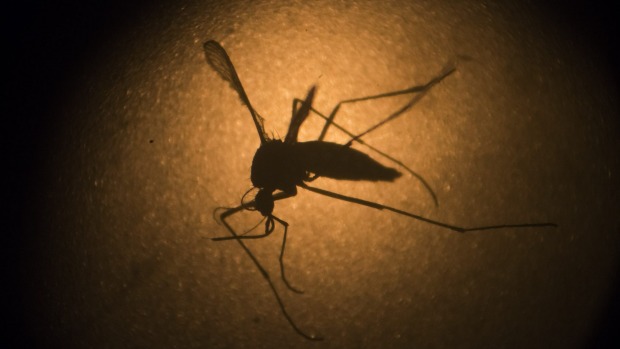
Queensland has now confirmed two cases of Zika virus, as officials in some infected countries are advising women to delay becoming pregnant and Australian authorities urge pregnant women to defer travel to affected areas.
A child who recently returned to Brisbane from Samoa with family after a holiday is the second confirmed case of the virus in 24 hours.
Queensland Chief Health Officer Dr Jeanette Young said the child had presented to a Brisbane hospital and the result had come through on Saturday morning.
A woman is recovering from Zika on the Gold Coast after returning from El Salvador in Central America where the mosquito-borne virus is spreading quickly.
“She has been discharged from hospital and there is no risk to her, her family or the general public from the virus,” a Queensland Health spokesman said.
Five people have been confirmed to have the Zika virus in Australia this year, all of whom were infected overseas.
The latest cases come after a Western Australian adult was diagnosed with the virus after recently returning from Central America.
It also comes two days after health experts met in Queensland to ensure the state could respond to any potential outbreak of the virus.
Enhanced testing for Zika in Townsville was among the measures announced after the meeting.
Although 11 Zika cases have been recorded in Queensland since 2014, there has been no local transmission of the virus.
The virus is transmitted to humans through the bites of infectious Aedes mosquitoes, most commonly Aedes aegypti, the same species that transmits dengue in north Queensland.
Most infected people have no symptoms or experience only a mild illness but the virus has been linked to microcephaly, a neurological disorder in which infants are born with undersized heads.
Brazil has reported nearly 4000 suspected cases of microcephaly.
The New York Times reported that Five Latin American and Caribbean countries, including Brazil and El Salvador, had advised women to delay pregnancy, although for different periods of time.
Dr Young has urged pregnant Queensland women not to travel to places where there have been Zika outbreaks.
Meanwhile, Australia will give Pacific Island countries $500,000 to counter the spread of the virus. The focus will initially be on Tonga, where the number of reported cases of Zika virus has more than doubled in the past 12 days to 265 suspected cases.
Australia’s support would contribute to the World Health Organisation Zika Virus Action Plan for the Pacific, the Minister for International Development and the Pacific Steven Ciobo said on Saturday.
“It is aiming to ensure a co-ordinated response across our region, including improving surveillance, monitoring, access to testing, diagnosis and treatment,” he said.
– with AAP
